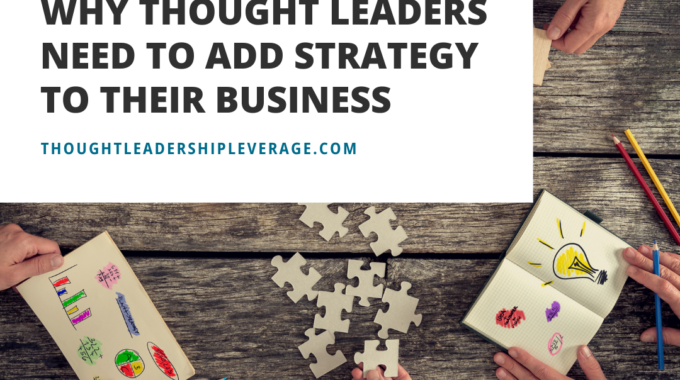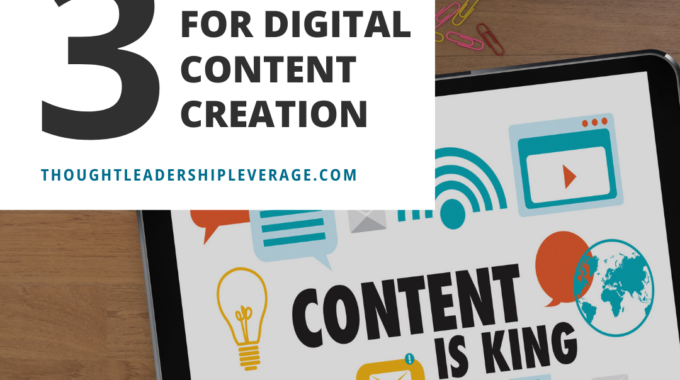Is your thought leadership strategy as solid as a rock? Let's get real—having a strategy…
We’ve Got the Data, We Need Insight

Eric Schmidt, former CEO of Google, once said, “Every two days now we create as much information as we did from the dawn of civilization up until 2003.” That’s a mind blowing statistic. Now, 80% of that information may very well be videos of dancing cats, text messages asking, “where are u?”, and emails from Nigerian royalty offering to send you ten million dollars, but there’s still more valuable information available to each of us than ever before. There’s also a paradox of an inverse relationship between our access to information and our insight.
Information is neutral. It has no opinion and it isn’t inherently good or bad. It’s just information. Regardless of the quantity of it that is available or the speed at which it now travels the globe, it is only valuable or powerful if it is coupled with insight. However, insight requires critical thinking skills, analysis and knowing how to ask questions to solve a problem.
Too much data or applying the wrong information to the wrong situation makes things more confusing. I’ve seen a lot of very smart people confusing their ability to access information with the ability to decipher it. Technology will continue to provide us with tools and access to the information at warp speed, which can either be a help or a hindrance if we don’t take a step back and learn how to manage it effectively.
Google “history of Paris” and you’ll come up with about 489,000,000 hits. This tells me two things: 1) It was a relatively useless search and 2) That’s more information than I can consume in ten lifetimes. What we need to do is effectively manage and filter the information we have access to so that it has value to us and is an input in our ability to make decisions.
Information is not insight and can either enable you to have better insights or distract and confuse you. We now live in a world where almost everyone has access to the information. That means that having some sort of a strategic or competitive advantage based on information is no longer an option. There are certain exceptions to this (patents, copyright, classified government data, etc.), but for the most part the playing field is level.
You can only differentiate, add value and ultimately succeed by constantly improving your ability to decipher and evaluate information as well as manage it efficiently. It is a dynamic process as the information that was critical to you and your organization a year or a month ago may not be the right information to make a decision today, yet we like to rely on what we’ve done in the past and are often reluctant to question it and more reluctant to change it.
I’d suggest you start with the right questions and make sure that the information you have is clearly information that will help you answer those questions. More often than not it is less than ideal and may actually be counterproductive. Getting the data is easy, getting the right data to answer the right question coupled with your insight leads to innovative thinking and long term competitive advantages in the marketplace.
Comments (2)
Comments are closed.





We need more bee keepers or queen bees to organize this info better.
I like crowdsourcing, opensource and “Coolfarming”
Hives that attract people who have a serious interest and can contribute.
Identy and selfworth
The people and businesses selling big data solutions forget that it is garbage in garbage out and without humans qualified to be objective in seeing the real insights the data is worthless. Too often marketing studies are completely wrong because of bias, agendas, etc. Bob Hoffman and I torched a Neislen Study in 2009 that proved Facebook ads worked. Basically they took 124 campaigns. Of those 22 worked. So they tossed the rest then declared the ads were a success. All because 1] Nielsen had an agenda to win more business from Facebook and 2] Facebook was desperate to prove their ads worked. Irony is their ads still mostly don’t work even with all the data available. It is why still today 9 in 10 new products fail. Why 9 in 10 news businesses don’t last 5 years and why 9 in 10 Thought Leader Thoughts (I bet 39 in 40) turn out untrue.